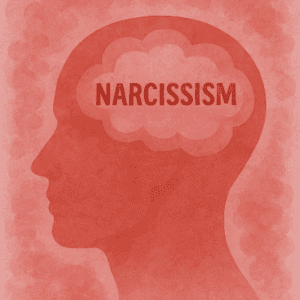
Can narcissism or Narcissistic Personality Disorder (NPD) be cured? Explore what research says about treatment outcomes, therapeutic approaches, and long-term prognosis.
Introduction
Few topics in psychology spark as much debate as the treatment of narcissism. From everyday narcissistic traits to full Narcissistic Personality Disorder (NPD), clinicians and clients alike often ask: Can narcissism be cured?
While “cure” may be too simplistic, research indicates that with the right evidence-based interventions, narcissistic traits can be managed, reduced, and even transformed. The key lies in understanding both the challenges and the therapeutic possibilities.
What Research Says About Narcissism and Change
Personality Disorders Are Treatable: Once thought untreatable, personality disorders—including NPD—are now recognized as responsive to long-term, structured therapy.
Narcissism Exists on a Spectrum: Some clients present with traits (e.g., entitlement, sensitivity to criticism), while others meet full diagnostic criteria for NPD. Treatment outcomes vary depending on severity.
Change Is Gradual: Rather than a “cure,” the goal is often improvement in functioning, empathy, and relationships.
Challenges in Treating Narcissism
Low Insight: Clients may not recognize the problem, entering therapy due to external pressures.
Defensiveness: Feedback can trigger shame, anger, or early dropout.
Deep-rooted patterns: Grandiosity and lack of empathy often mask underlying vulnerabilities, such as fear of abandonment or worthlessness.
These challenges make treatment progress slower but not impossible.
Evidence-Based Treatments That Help
Schema Therapy
Focuses on identifying and restructuring early maladaptive schemas.
Targets the vulnerable “inner child” beneath defenses.
Evidence: Shows promise in reducing maladaptive narcissistic traits and improving empathy.
Transference-Focused Psychotherapy (TFP)
Examines how clients relate to the therapist as a mirror of their broader interpersonal world.
Helps integrate fragmented self-concepts.
Mentalization-Based Therapy (MBT)
Builds the ability to understand one’s own and others’ mental states.
Improves empathy and relational functioning.
CBT and DBT Adaptations
CBT: Addresses distorted thinking patterns like perfectionism and entitlement.
DBT: Provides skills in emotion regulation, distress tolerance, and interpersonal effectiveness.
Case Example 1: Relationship Conflicts
Client: Daniel, 39, came to therapy after multiple breakups.
Challenge: He minimized his partner’s needs and became enraged by criticism.
Treatment: Schema therapy revealed abandonment fears driving his defensiveness.
Outcome: Over time, Daniel developed more vulnerability and improved relational empathy.
Case Example 2: Workplace Struggles
Client: Sophia, 44, an executive, lost her job after repeated conflicts.
Challenge: Perfectionism and lack of collaboration.
Treatment: CBT interventions helped her reframe rigid beliefs and practice flexibility.
Outcome: Sophia rebuilt her career, showing greater tolerance for feedback.
Can Narcissism Be “Cured”?
The research consensus is clear:
Narcissism cannot be “cured” in the traditional sense. Personality patterns are deeply ingrained.
But it can improve. Clients often reduce maladaptive traits, strengthen empathy, and build healthier relationships.
Success depends on: Motivation, quality of the therapeutic alliance, and sustained commitment to treatment.
Final Takeaway
While the idea of “curing” narcissism oversimplifies a complex personality structure, evidence-based therapies show that meaningful change is possible. With schema therapy, psychodynamic approaches, CBT, DBT, and MBT, clients can gradually build self-awareness, empathy, and emotional regulation.
For therapists, the task is challenging but deeply rewarding. For clients, the journey may be long—but growth, healing, and improved relationships are within reach.